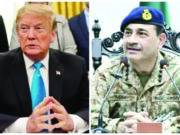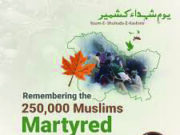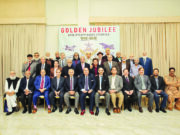Since 1948, the ongoing conflict between Palestine and Israel has evolved into a complex, prolonged crisis with severe human rights implications. In 1947, under the United Nations Partition Plan, it was proposed to divide Palestine into Arab and Jewish states. The Jewish leadership accepted this plan, but Arab countries and Palestinians rejected it. As a result, the state of Israel was established in 1948, and the first Arab–Israeli war broke out, during which millions of Palestinians were displaced from their lands and became refugees.
The United Nations passed several resolutions, such as Resolutions 194, 242, and 338, which support the right of return for Palestinians, prevent Israeli occupation, and advocate for a two-state solution. However, Israel has often violated these resolutions, and international bodies have failed to enforce them effectively. Consequently, basic services, inflation, unemployment, and widespread destruction have become common in Palestine, while the humanitarian crisis in Gaza and the West Bank continues to intensify.
Several Muslim countries, including Egypt, Jordan, and the United Arab Emirates, have recognized Israel and established diplomatic relations, but Saudi Arabia and Pakistan still refrain from recognizing Israel. Despite growing international pressure, public opposition to Israel remains strong in Pakistan and other Muslim countries. Pakistani passports explicitly state that they are valid for all countries except Israel, reflecting the country’s public policy and sentiments.
Recent projects and international agreements include ambiguous points regarding the military deployment of various countries along the Palestine–Israel border, which some circles consider biased. Israel has claimed that the armies of Pakistan, Indonesia, and Azerbaijan will be deployed to maintain peace along the border; however, the public remains skeptical, and no satisfactory official information has been provided.
In Pakistan, some groups allege that the government is trying to suppress public sentiment and is taking strict actions against those raising their voices in support of Palestine. Experts say that Pakistan’s founder, Quaid-e-Azam Muhammad Ali Jinnah’s principles, emphasizing the protection of oppressed Muslims’ rights, have been neglected. Other Muslim countries are expected to seek consistent and concrete solutions for the rights of the Palestinian people and not leave them isolated under pressure from powerful nations.
This conflict has created not only political and military crises but also a humanitarian one. Approximately 2.3 million people live in Gaza, 70% of whom reside in refugee camps. Children, women, and the elderly are severely affected, with insufficient education and health facilities, and each year, a new generation suffers from this tension. In these difficult and adverse conditions, this nation continues to stand against oppression with full determination.
In the end, we pray that Allah grants the Palestinian people relief from oppression, terrorism, poverty, and destitute conditions, and that a just, sustainable, and internationally acceptable solution to this long-standing and complex conflict emerges, so that peace is established in the region and human rights are protected. Ameen.
We should all raise our voices against oppression at our respective levels.
“Waan Laysa Lil Insana illa ma’ sa’aa “
That man can have nothing but what he strives for.


























